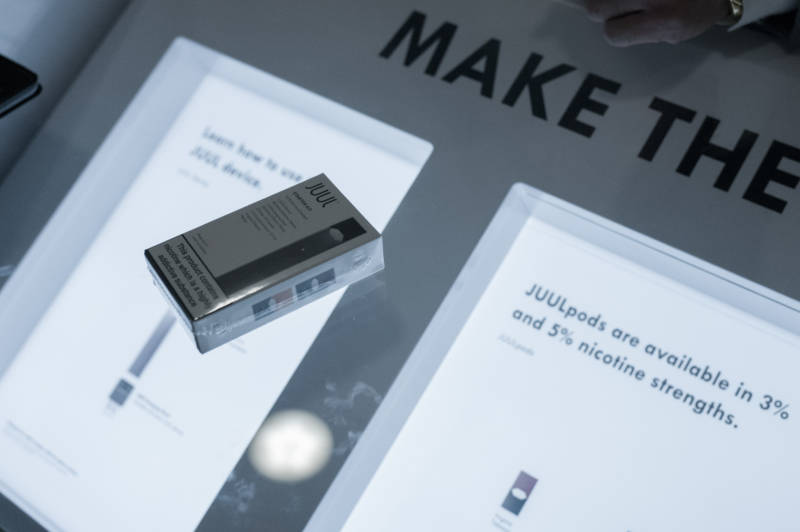Authorities have launched multiple investigations and warnings against Juul for marketing to teens and for making unauthorized claims that its product is safe.
Now health advocates like Limpin worry that Juul could make up for the clampdown in the U.S. by shifting its focus to countries that are less wealthy such as the Philippines.
Shane MacGuill studies the tobacco industry for the market research firm Euromonitor International. He says that international expansion is unquestionably "an important part of the business strategy for Juul."
The company is already in 20 countries. Almost all of them are wealthy. But this spring Juul made its first foray into less well-off nations with its entry into not just the Philippines but Indonesia. And MacGuill says Juul has been laying the groundwork to launch in many more by hiring country managers in a slew of nations as well as in cities that will function as regional hubs.
"If you look at where the majority of tobacco and nicotine consumption takes place globally, it is in lower middle income markets," says MacGuill.
For now, adds MacGuill, most consumers in those poorer countries can't afford Juul products. (The vaporizer sells on Juul's Philippines website for about $30. And each two-pack of pods costs nearly $7.) But MacGuill says Juul has been banking on the possibility that eventually incomes in those countries will rise.
"The strategy was really built around making sure that the brand was in a position to access that sort of potential growth," says MacGuill.
So in the medium- to long-term, places like the Philippines could become important markets. And Limpin, the health advocate, says she already sees signs that Juul is behaving very differently in the Philippines compared to the U.S.
For instance, one of the U.S. Food and Drug Administration's investigations centers on whether Juul's fruit and other nontobacco flavors constitute illegal marketing to kids and should therefore be banned. In response, Juul has voluntarily pulled these flavors from U.S. stores.
That hasn't happened in the Philippines.
Limpin says, in her country, "There's really no good law that will protect us from these kind of tactics."
In July, the Philippine Food and Drug Administration tried to issue an administrative order that would have prohibited the sale of e-cigarettes to minors and limit how and where they can be marketed. But two Philippine e-cigarette companies have tied up the order in court. So according to Ana Trinidad Rivera, director of the relevant department at the Philippine FDA, the status of the order is now "under discussion by the government lawyers handling the case."
Also at issue: The messages Juul puts out about the safety of its product.

9(MDAxOTAwOTE4MDEyMTkxMDAzNjczZDljZA004))